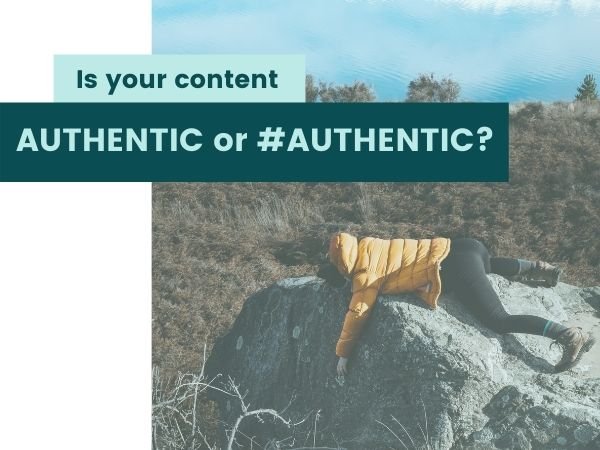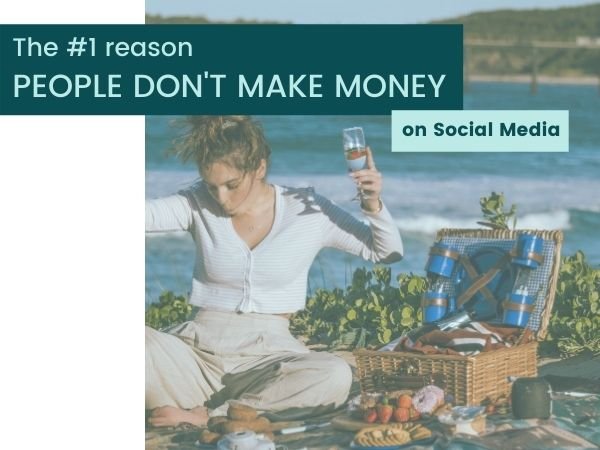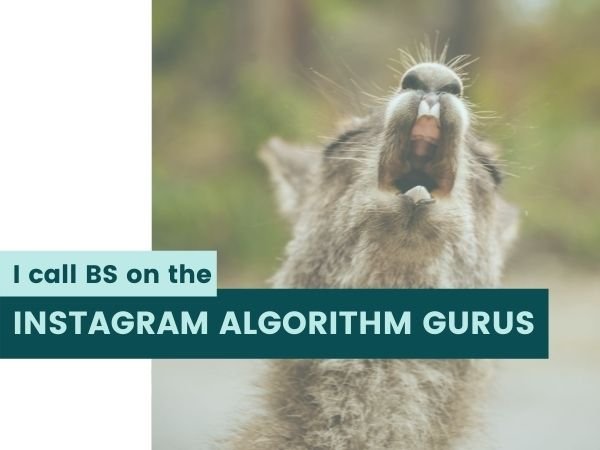
What is Authentic content?
A few months after the world closed its doors to travellers in 2020 we started noticing a shift in what people started looking for on Instagram. All of the accounts that had made their name highlighting the amazing life they led in the most stunning and glamorous places on Earth went from being inspirational to being seen as a slap in the face to everyone who was struggling to keep their shit together in lockdown.
The 'bikini-clad girl reclining on the edge of a private infinity pool in front of a massively edited sunset' just made the rest of us even more depressed by our current situations, and many of those accounts started losing followers and getting negative comments. And so we saw the dawn of a new era on Instagram, the age of 'authentic' content.
A lot of people had already been promoting this more genuine lifestyle for a long time but without really resonating with the wider Insta community, but now they were the ones seen as inspirational, simply by showing everyone that they were struggling too and trying to make the best of a bad situation.
Some were still doing whatever travel they could locally and providing that inspiration of 'even if borders are closed, there are things to explore in your own back yard', while others got really creative and started 'travelling' to parts of their house that they had themed up. It was about fun and imagination, not about showing how perfect their life is.
"If you are authentic failure is still a possibility, but if you are inauthentic failure is almost guaranteed." - Jamie Kern Lima (she started IT Cosmetics in her kitchen and eventually sold it to L'Oreal for $1.2 BILLION!)
"If you are authentic failure is still a possibility, but if you are inauthentic failure is almost guaranteed." - Jamie Kern Lima (she started IT Cosmetics in her kitchen and eventually sold it to L'Oreal for $1.2 BILLION!)
Why is it important to be Authentic?
Being authentic isn't just about creating more relatable content, it's about being yourself. Or at least a version of yourself that fits your personal brand. You will find that anything less than this will catch up to you in the end, and while you can create this 'superhero' persona from the start, people will eventually see through it and lose interest.
Now to build a strong community your followers want to know more about the real you. They want to feel a connection, shared passions, beliefs, and ideas. They want to be able to relate to your struggles and then they can share in your victories. They want to see themselves as so similar to you that you become their inspiration, to feel that 'they did it, I'm a lot like them, so I can do it too!'
A bonus reason to be authentic is for your mental health, it can be exhausting and stressful to have to keep your fake persona looking 'real'. And the stupid thing is that just as many people, and maybe even more, would want to follow authentic you as want to follow fake you.
So what is #authentic?
When the backlash started against the glamstagrammers who continued to promote 'living their best life' many of them (or more likely their PR person or social media manager) decided to pivot from a fake glamorous life onto a fake authentic life.
They started posting more about how the pandemic was affecting them just like everyone else, and how they are just ordinary like the rest of us. Some managed to pull it off but for others, it was so obvious that they lost even more credibility and even became something of inside jokes in the community.
A term was created to describe this, 'curated authenticity', or even #authentic. This is where there is nothing genuinely authentic about the content but it has been carefully created to make them look like an everyday person but still fit with their brand. And some are just laughable.
Imagine seeing a post of Queen Elizabeth sitting at a bus stop with a caption about her understanding the struggles of getting to work every day. All done to try to make her more relatable to regular Joes like us. It just doesn't work but that's how obvious some of the #authetic Instagrammers were.
It all comes down to you
Authenticity is a massive part of defining your personal brand. As we have all seen, some people go to great lengths to create a brand that they think will appeal to more people, or they just copy someone who has been successful with a certain look and feel. And you may decide this is the way you want to take your business. Well, you be you!
But I am firmly in the camp that stands by building your personal brand on the foundations, or core beliefs, of the real you. Your personal brand does not have to be 100% you, but it should be heavily based on your passions, beliefs, and life.
Wandering Donut and Dana Williamson definitely have a lot in common, but there are parts of the real me I don't feel the need to share online. And Wandering Donut is, without doubt, way more extroverted than Dana, but we are not that different overall.
I highly recommend you build your personal brand and content on being authentic and not conning your followers into thinking you are something you are not. Developing that close relationship you hope for with your community is not worth it if it's all built on a lie.





Leave A Comment